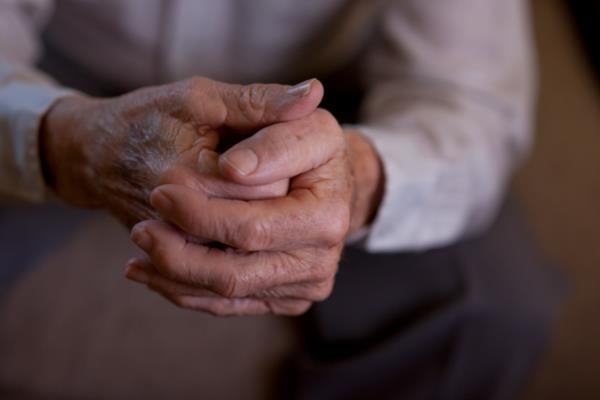If you’ve noticed behavioural changes such as irritability, startling easily, or having difficulty sleeping, your aging loved one may be suffering from anxiety, which affects around 10-20 percent of older adults.
When an older adult becomes agitated due to their anxiety, it may be difficult to know how to approach them in a way that will not heighten their feelings. However, by trial and error, caregivers often find individualized methods that are effective in calming anxiety—like offering a favourite food or giving a hand massage—when they become agitated.
But, sometimes even our best attempts to calm our aging loved ones fall short, says Home Instead Gerontologist and Caregiver Advocate Dr. Lakelyn Hogan. It is important to keep in mind that what works today to calm anxiety, may not work tomorrow. Try not to get discouraged. Sometimes it helps to try three times, three different ways.
Making note of what works and doesn’t work can help identify patterns and these nuggets of information can also be passed along to other family members or caregivers supporting the older adult.
Steps to Follow When Approaching an Agitated Older Adult
If your loved one, particularly an older adult living with dementia or Alzheimer’s Disease, does become anxious or upset, consider the following steps when approaching them.
Remain calm.
Speak in an even, calm voice and pay attention to your own body language. You may even need to take time yourself to calm down. Try taking three deep breaths if you feel yourself becoming worked up.
Approach slowly.
Never come up behind the individual and sometimes approaching directly from the front can also feel confrontational. It is best to approach from the side but in their line of sight. You may want to pause a few feet away to ensure they see you are approaching.
Make eye contact.
After you’re seen, be sure to make eye contact. It can even be helpful to get at eye level, especially if they are seated.
Provide comfort and reassurance.
Comforting gestures like hand holding, stroking their hand or back can provide physical touch that is calming. You can also verbally reassure and validate the individual’s frustrations. You could say “I see you are upset. I am here with you. I am here for you.”
Keep yourself and the person safe.
In some cases, you may need to remove the individual from the room or remove items from the room that may be harmful. As the care partner, you may need to exit the room if the individual is safe to be on their own and reapproach when the person has had a few minutes to calm down. You could try to enter again with a smile and positive attitude to see if that helps to improve the situation.
Caring for someone living with anxiety or another mental health condition is challenging. If you feel unsafe or if you’re in need of more support, remember calling for help is never shameful, your safety is important too.
Maintain dignity and respect.
It is important at all times to ensure we treat our loved ones and individuals living with anxiety or dementia with dignity and respect. Even during challenging situations, it may be tempting to yell out of frustration or talk down to the individual. It is in those moments that stepping away or taking three deep breaths can help you keep your composure to ensure you maintain dignity and respect.
Triggers for Agitation in Older Adults
In addition, when an older adult becomes agitated, keep in mind that a variety of factors beyond anxiety or dementia could be involved. Other factors that may trigger agitation include:
- Physical issues such as discomfort, illness, or pain.
- Environmental factors such as room temperature or overstimulation due to noise, bright lights, or crowded spaces.
- Communication challenges such as misinterpretation of words or actions or an inability to communicate or express needs or desires.
Sometimes caregivers or care partners need to put on their detective hats to discover why the individual is becoming agitated or aggressive. It may be helpful to track these behaviours, particularly common with a dementia diagnosis, in a journal to see if patterns emerge. This can those providing care become proactive in preventing the agitation or intervene early.
As a caregiver, if you are feeling overwhelmed in managing your aging loved one’s anxiety, be sure to talk with their doctor. You can also hire professional caregivers from an organization like Home Instead to help support you and your loved one through these behaviours, whether from generalized anxiety or a condition such as dementia or Alzheimer’s Disease.
Find additional calming strategies, especially for those living with dementia, in this video: Coping with Agitation and Aggression.



